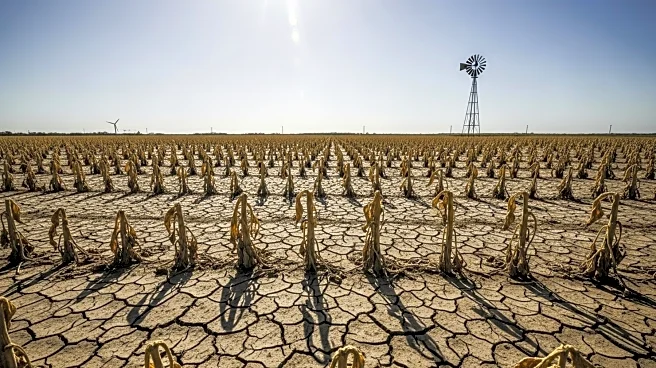What's Happening?
European farmers are experiencing significant crop failures due to worsening drought conditions, with reports of total crop loss in some areas. The drought has severely impacted the Rhine River, a crucial industrial waterway, leading to substantial economic losses for companies like BASF. The drought has dried out crops, reducing yields by up to 75% compared to the average over the last two decades. Farmers are struggling to cope with the financial strain as they face reduced liquidity and increased costs. The situation is exacerbated by climate change, which is causing more frequent and severe droughts across Europe.
Why It's Important?
The drought's impact on agriculture and industry highlights the vulnerability of Europe's food system and economic infrastructure to climate change. The Rhine River's low water levels have disrupted industrial operations, causing significant financial losses. This situation underscores the need for sustainable water management and climate adaptation strategies. The agricultural sector, particularly small-scale farmers, faces increased risks and financial instability, which could lead to higher food prices and reduced food security. The broader economic implications include potential disruptions in supply chains and increased costs for consumers.
What's Next?
Farmers and industries are likely to seek government support and investment in climate resilience measures. There may be increased pressure on policymakers to implement strategies that mitigate the effects of climate change and support affected sectors. The situation could lead to a reevaluation of water management policies and investment in infrastructure to better handle extreme weather events. Additionally, industries may explore alternative transportation methods and technologies to adapt to changing environmental conditions.
Beyond the Headlines
The drought raises ethical and environmental questions about the sustainability of current agricultural practices and industrial operations. It highlights the need for a shift towards more sustainable and resilient systems that can withstand climate-related challenges. The situation also emphasizes the importance of international cooperation in addressing climate change and its impacts on global food security and economic stability.











